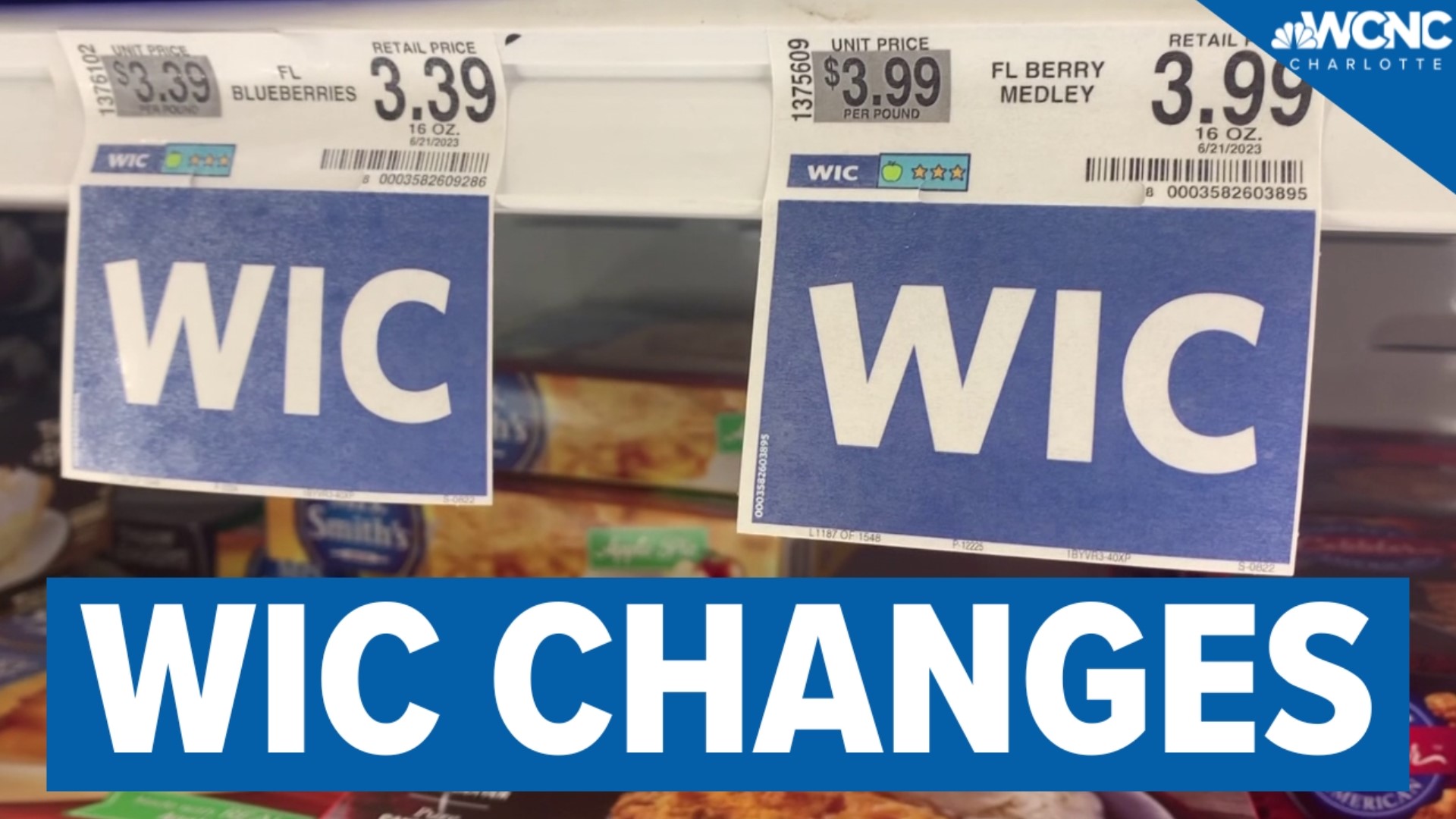NORTH CAROLINA, USA — Starting Aug. 1, several benefits and exceptions that were made available through the WIC and SNAP food assistance programs during the pandemic will come to an end.
According to the North Carolina Department of Health and Human Services, 1.6 million people in North Carolina receive SNAP benefits and 260,000 North Carolinians are enrolled in WIC, a supplemental nutrition program for women, infants and children.
Although the public health emergency ended in May 2023, families tell WCNC Charlotte’s Jesse Pierre that people are still facing higher costs of living, inflation, and other financial expenses and those benefits provided them with relief.
“Food has risen in cost just like a lot of things have and it’s def been helpful to focus my money, what money I do have on other things instead of having to think am I going to be able to feed my family tonight,” said Alyssa Herrholz, the mother of a two-year-old.
Herrholz is enrolled in both programs.
“It is something I look forward to every month because it saves us every month in lots of ways,” said Herrholz.
For WIC, the changes mean fewer options for families. For example, loosened restrictions are ending that allowed families to make brand substitutions.
Crisis Assistance Ministry CEO, Carol Hardison, said the flexibility allowed families to make healthier choices.
“What this really means is that moms will be looking at cheaper alternatives. Alternatives that are not as nutritious for a growing baby,” said Hardison. “Overall, we are going to pay for that. Don’t we want moms to be able to raise children in a healthy and nutritious manner?”
Herrholz said she is not looking forward to the changes.
“There are only certain brands you can get through the WIC program usually they are really off-brand and sometimes brands you have never heard of,” she said.
Herrholz adds more restrictions also make grocery shopping more challenging. She does have the benefits app, which she said she will be using again.
“I will have to utilize that more and that takes time out of the shopping trip to stop, take that picture, scan it and see if it is right for my benefits or not,” Herrholz said.
For SNAP benefits, families will now have to recertify every six months, instead of 12 months. College students who have completed a FAFSA application will no longer be eligible.
The time limit on benefits is also back in effect. So, adults between 18 and 49 without dependents can only receive SNAP benefits for three months in a three-year period, unless they are working or other exceptions qualify them.
People with class H or I felony convictions were not required to complete a substance abuse assessment to be eligible for SNAP. Those assessments are required again.
“I think it is unfortunate because being someone who has benefitted from these things I can't imagine not being able to use them anymore,” said Herrholz. “They have definitely helped us get along.”
Crisis Assistance Ministry said they are seeing the effects firsthand as several benefits for families end and more families are coming through their doors.
“This is the year of reducing benefits from the pandemic,” said Hardison. “WIC is just the last program. There's been food stamps, and child care subsidies and so there are just so many programs that are now gone.”
Many families count on those benefits every month and the changes mean some families will have to make some tough decisions.
Hardison said the changes hurt already struggling families.
“We have seen a need at a level we have never seen before for rent and utilities. These are families who have lost benefits that were made available during the pandemic,” said Hardison. “Clearly this is proving these are needed services.”
Crisis Assistance Ministry helps folks with rent and utilities. They also have a store on site where people can get clothing, shoes and household items for free.
Hardison said it’s important that if you are struggling to reach out so they can help you get the financial support and resources you need.

